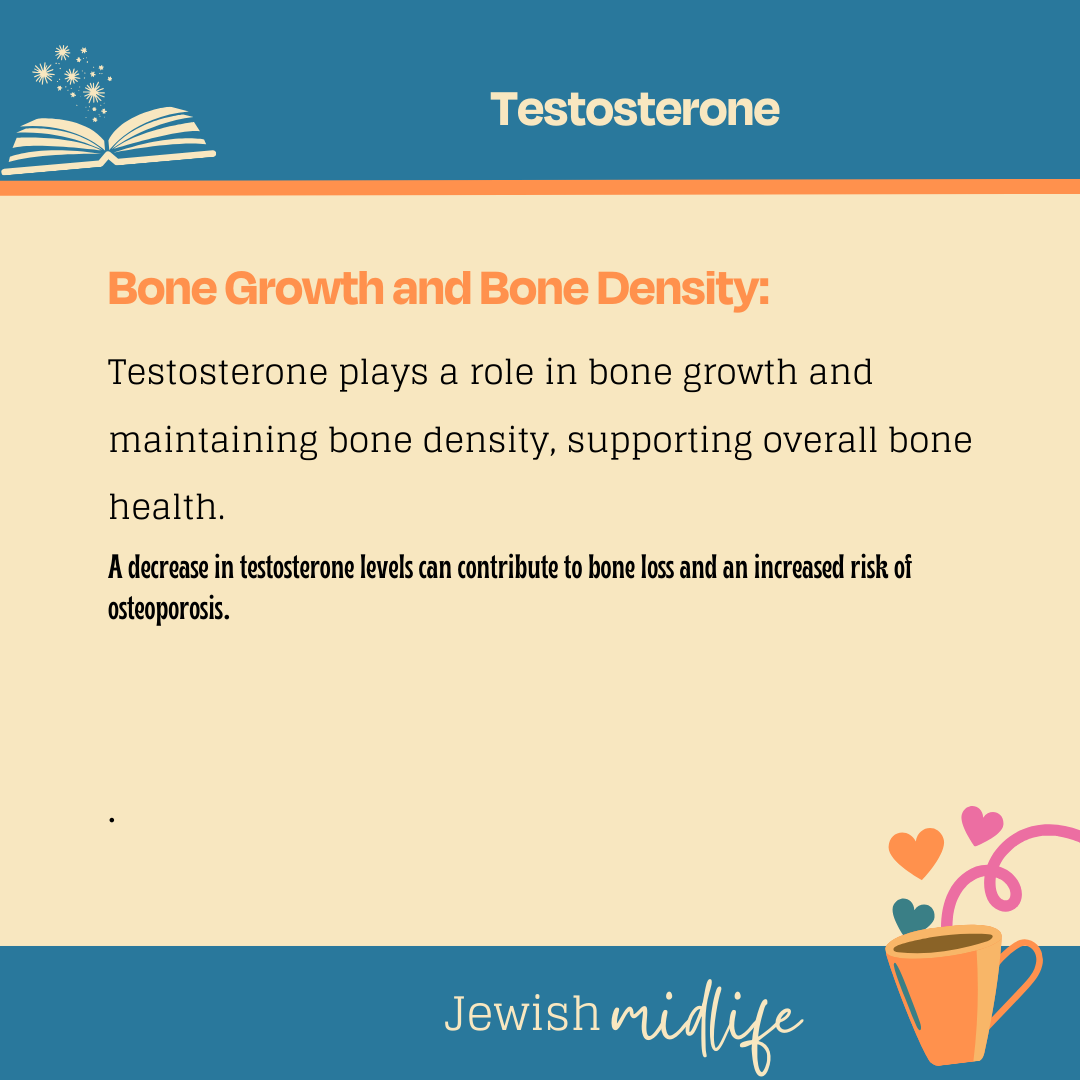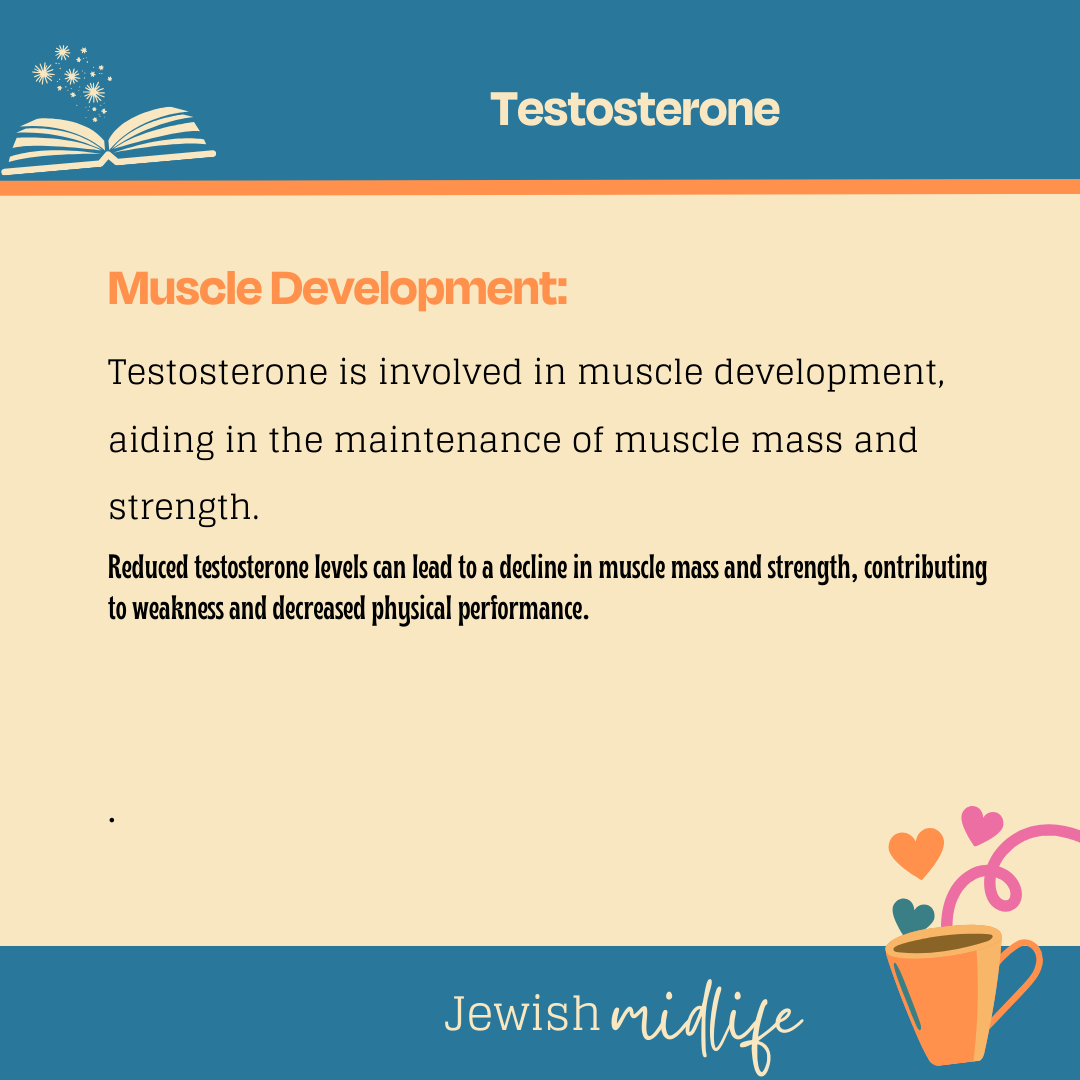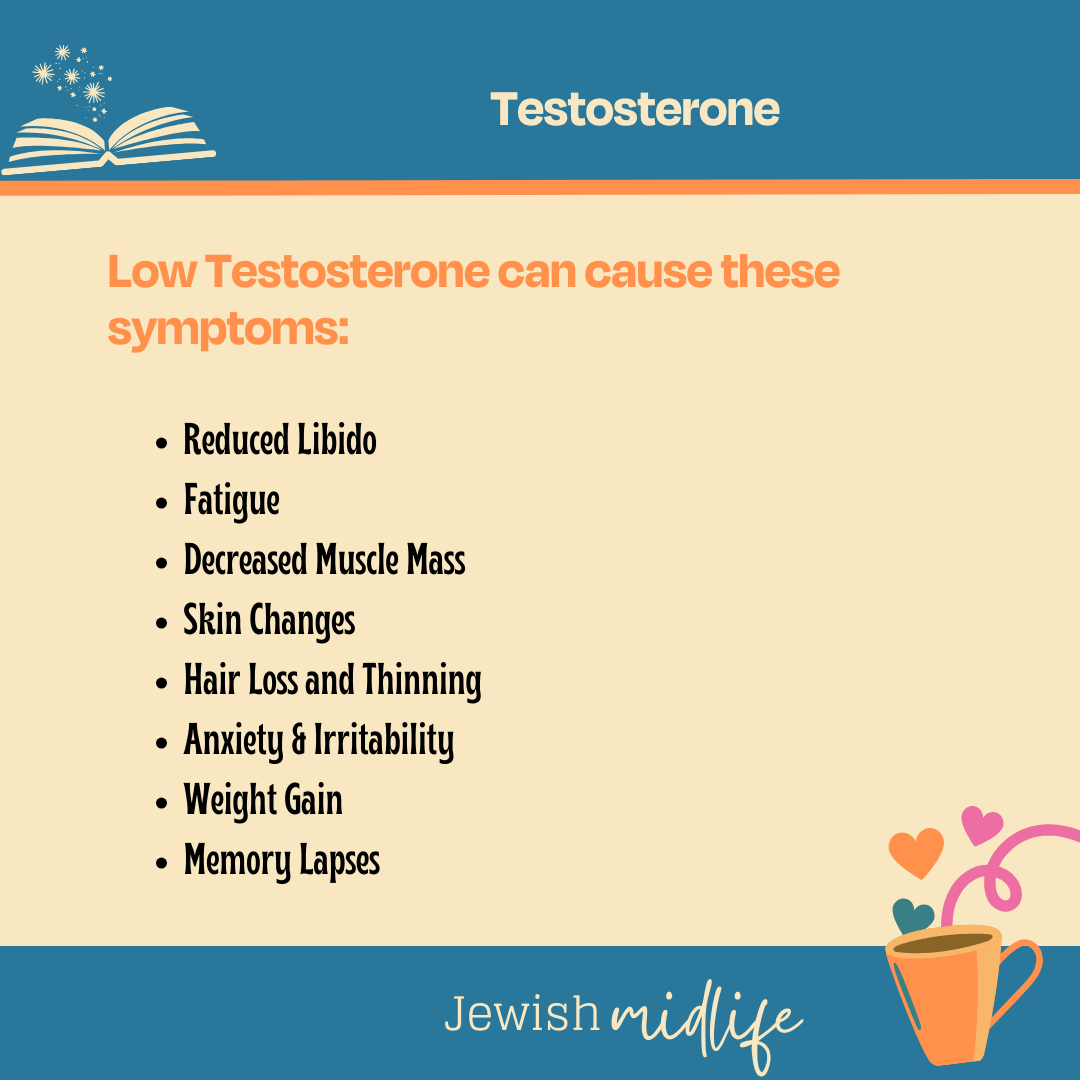Testosterone, a crucial hormone in both men and women, plays multifaceted roles beyond its primary involvement in sexual function.
The decline in testosterone levels during menopause (or other hormonal transitions) can result in significant changes in the body’s metabolism, energy levels, and overall well-being.
Libido and Sexual Function: Testosterone contributes to a woman’s sexual desire and overall sexual function. A decline in testosterone during menopause may lead to diminished libido and a decrease in sexual satisfaction.
Bone Growth and Bone Density: Testosterone plays a role in bone growth and maintaining bone density, supporting overall bone health. A decrease in testosterone levels can contribute to bone loss and an increased risk of osteoporosis.
Stimulates Red Cell Production: Testosterone stimulates the production of red blood cells, contributing to optimal oxygen transport in the bloodstream. Lower testosterone levels may result in a decrease in red blood cell production, potentially impacting oxygen delivery to tissues.
Muscle Development: Testosterone is involved in muscle development, aiding in the maintenance of muscle mass and strength. Reduced testosterone levels can lead to a decline in muscle mass and strength, contributing to weakness and decreased physical performance.
Skin Collagen: Testosterone contributes to the production of collagen in the skin, influencing skin elasticity and health. A reduction in testosterone levels may result in decreased collagen production, contributing to skin sagging and loss of elasticity.
Promotes a Healthy Circulatory System: Testosterone promotes a healthy circulatory system by influencing blood vessel health and function. Lower testosterone levels may impact blood vessel function, potentially affecting cardiovascular health and increasing the risk of circulatory issues.
Low Testosterone can cause these symptoms:
- Reduced Libido
- Fatigue
- Decreased Muscle Mass
- Skin Changes
- Hair Loss and Thinning
- Anxiety & Irritability
- Weight Gain
- Memory Lapses










